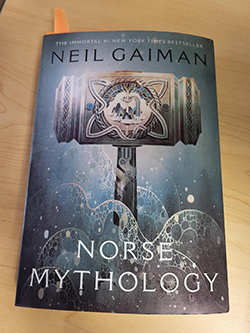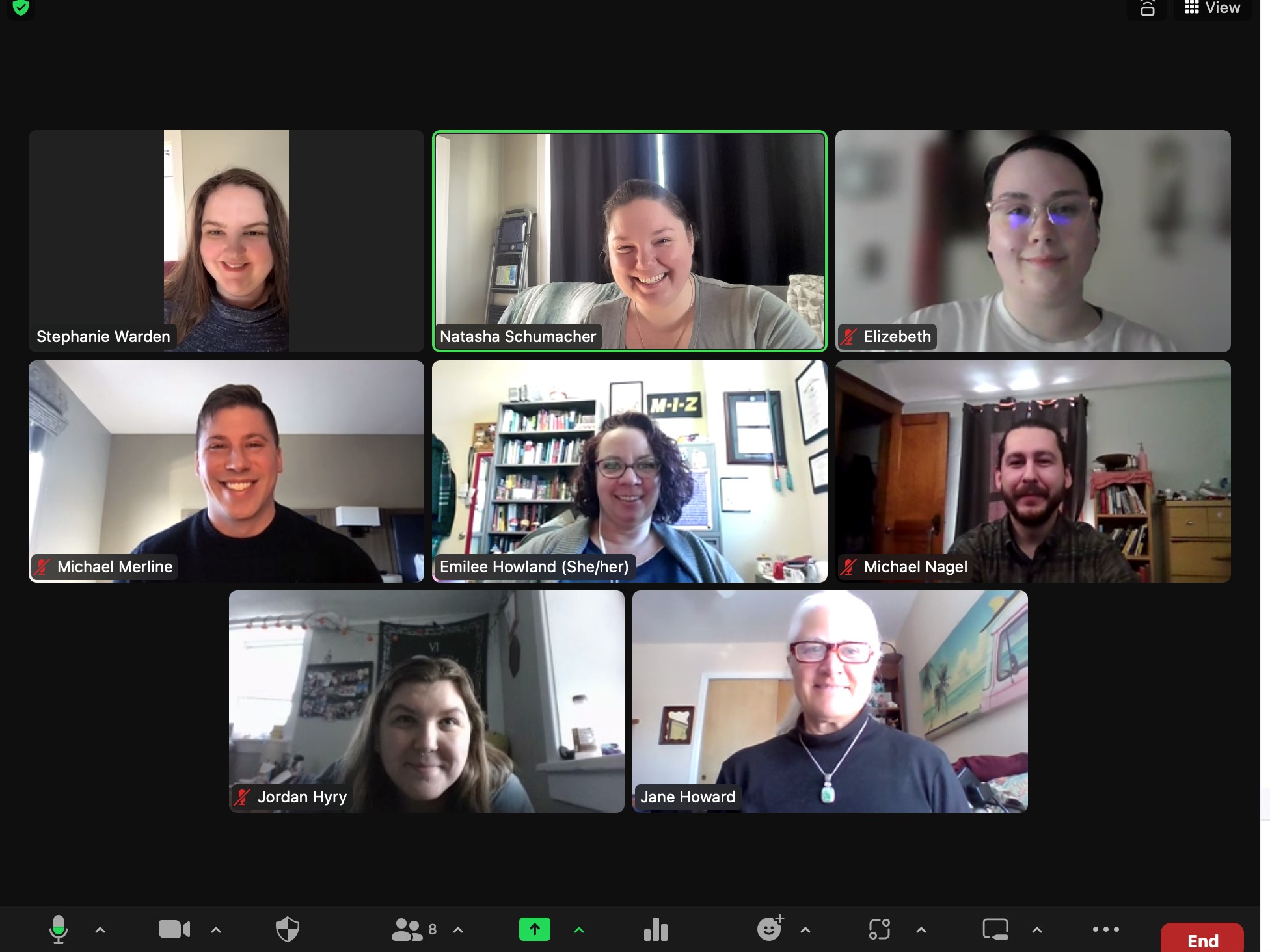TYPE
TOPIC
A book club, which began virtually at UW-Superior in late February, has helped connect the campus while exploring a new genre.
The Norse Mythology Book Club, which includes 15 members comprised of UW-Superior students, faculty and staff, has been meeting since February 23 via Zoom for one hour, every two weeks, to discuss the book “Norse Mythology” by author Neil Gaiman. The club will conclude April 6.

“There is a long tradition of CETL [Center for Learning, Innovation and Collaboration] running professional development book clubs as far back as 2007,” said Natasha Schumacher, Canvas administrator for UW-Superior’s Jim Dan Hill Library. “As the CLIC@JDHL, we have continued that tradition and expanded to include book clubs for different genres that are open to students, staff and faculty.”
That mixture has enabled individuals to interact outside of a classroom setting to share insights.
“The best part for me is hearing other people’s ideas,” said Schumacher. “They bring up points I wouldn’t have considered. We also have faculty who are subject matter experts in certain fields, such as writing, literature and medievalism, which provide an interesting insight. I also like that it allows students, staff and faculty to connect on a different level.”
In Gaiman’s work, the strengths and follies of Norse gods are highlighted and presented with ancient myths.
“This is the first fiction book we have done for a book club, so people were excited about it,” said Schumacher, who hosts the club with fellow Canvas administrator Michael Merline. “There is a lot of mystery and curiosity surrounding mythology. Participants have been noticing a lot of correlations between myths from various cultures, as well as similarities to other religions. At the last meeting, there was a lot of discussion about the representation of gender fluidity and how it is relevant to modern society, even though these myths were first recorded in writing during 13th century.”
For Schumacher and Merline, this is their third book club hosted. Previous selections include “Fuzz,” by Mary Roach, and “Cultish,” by Amanda Montell. Selecting a book isn’t as simple as scanning a best-seller list and seeing what is popular.
“We usually select a theme and then create a list based on suggestions from people on campus, as well as our own research,” said Schumacher. “We try to make sure they are books that can be split in a way that won’t provide spoilers if members haven’t had a chance to read those chapters. For example, this book is multiple short stories that don’t require you to read them consecutively. We narrow our list down to about ten choices and send a poll for people to vote on their top three choices. Whichever book has the most votes is what we read for the next club.”
The virtual aspect of the club has brought an additional positive aspect.
“Meeting virtually provides more flexibility and allows more people to participate,” said Schumacher. “We have some students and faculty that live further away, so this allows them to join, and we get to build our community.”
As final pages are turning on “Norse Mythology,” plans are already in place for the next personal enrichment book club.
“Our summer book club will focus on ‘The Canterbury Tales,’” said Schumacher. “Our fall book club is going to have a food theme and we’ll be reading ‘How We Eat: The Brave New World of Food and Drink.’ Michael and I will also be piloting a new idea for mini book clubs where people will read the entire book and then we’ll meet once at the end to discuss the entire thing. It gives people another opportunity to participate and we’ll be branching out to different genres. Our first one will take place during the summer and will also be held virtually.”
CLIC@JDHL’s Wolf’s Trail Book Club, in collaboration with One Book Northland, will begin in April. Hosted by Stephanie Warden, library associate director, this club is open to the UW-Superior and the local community.
